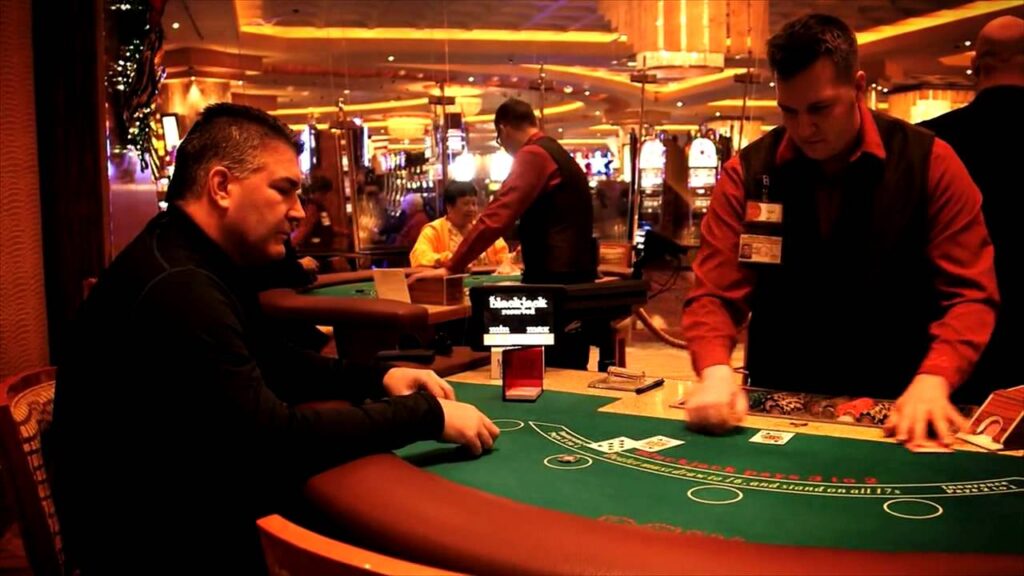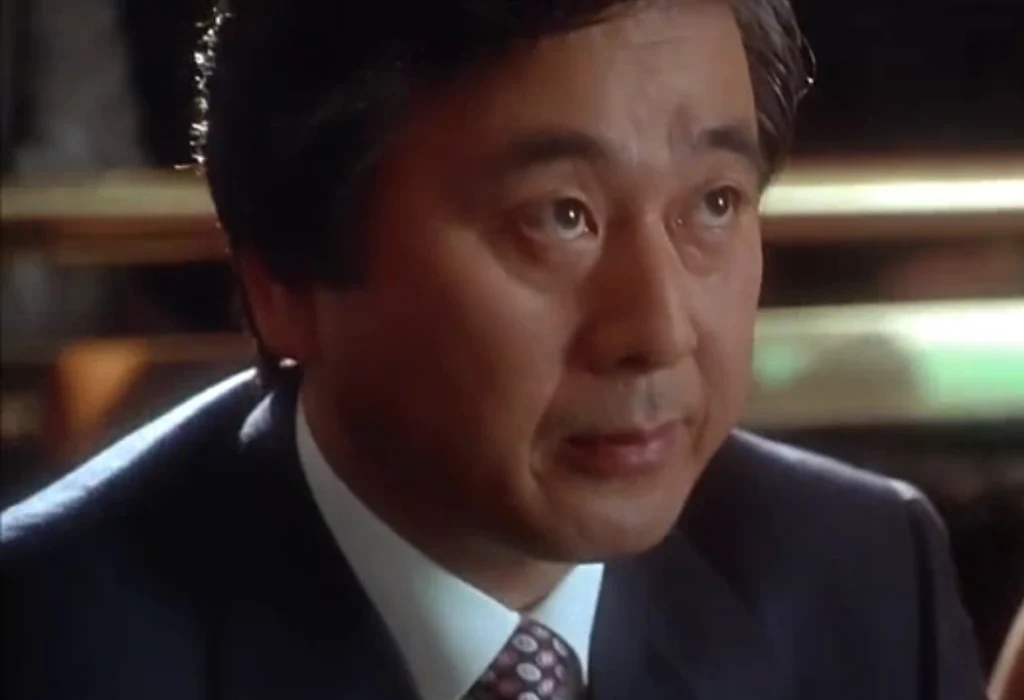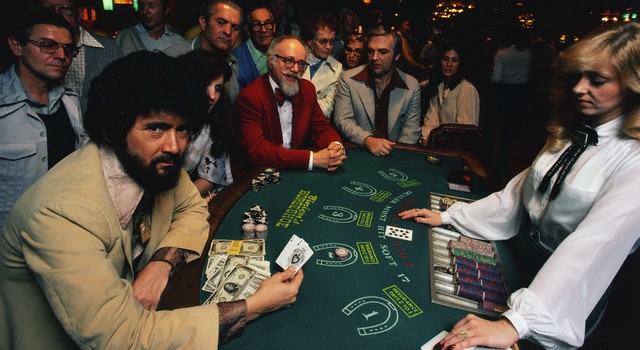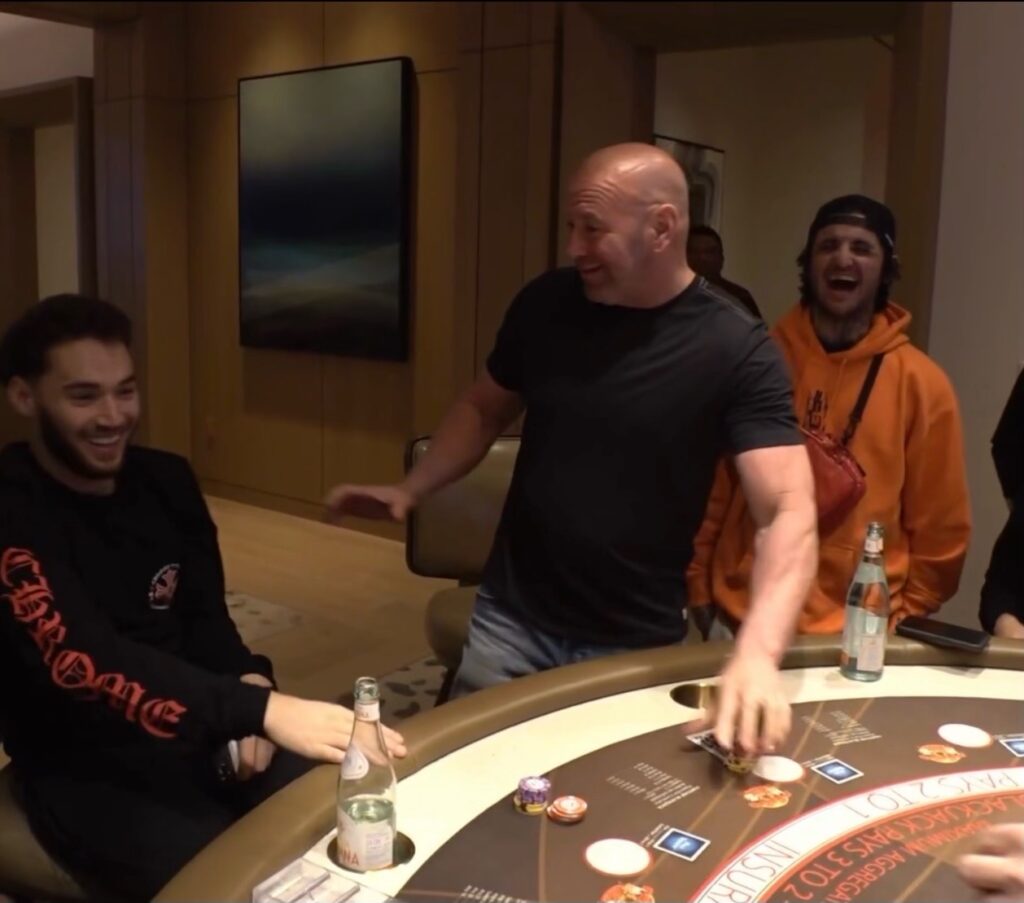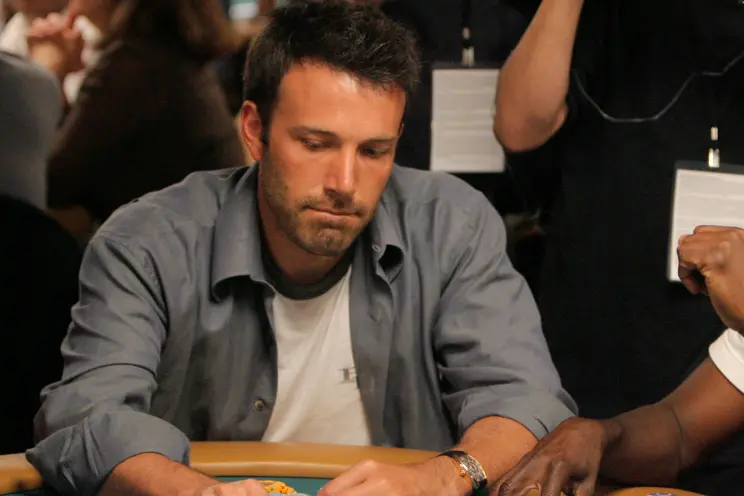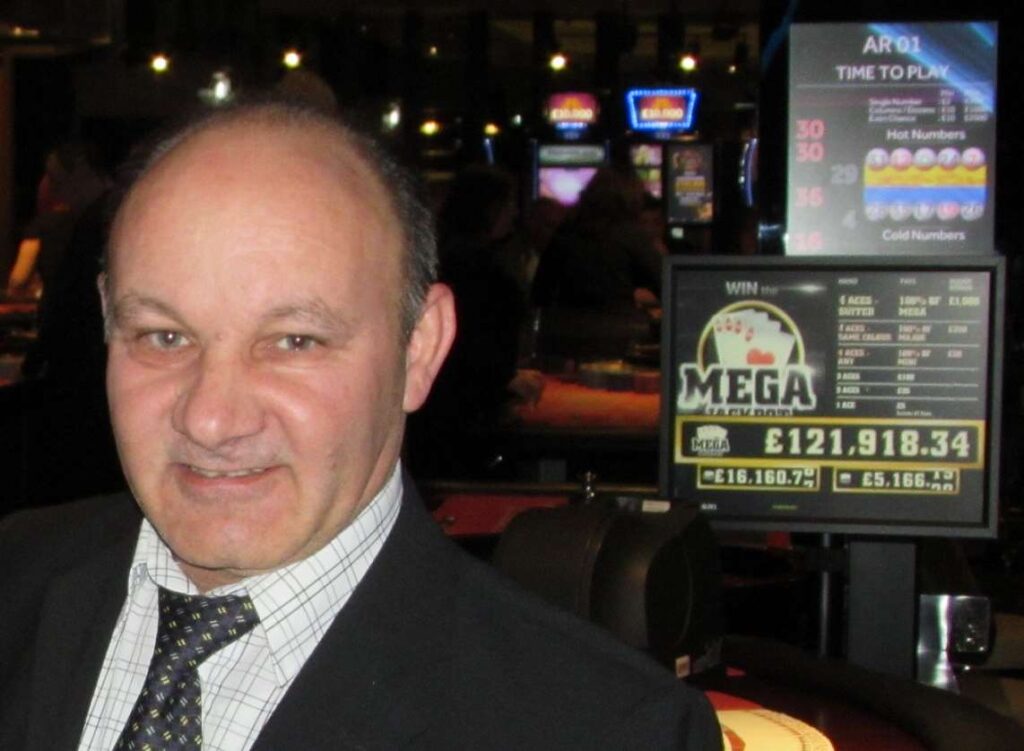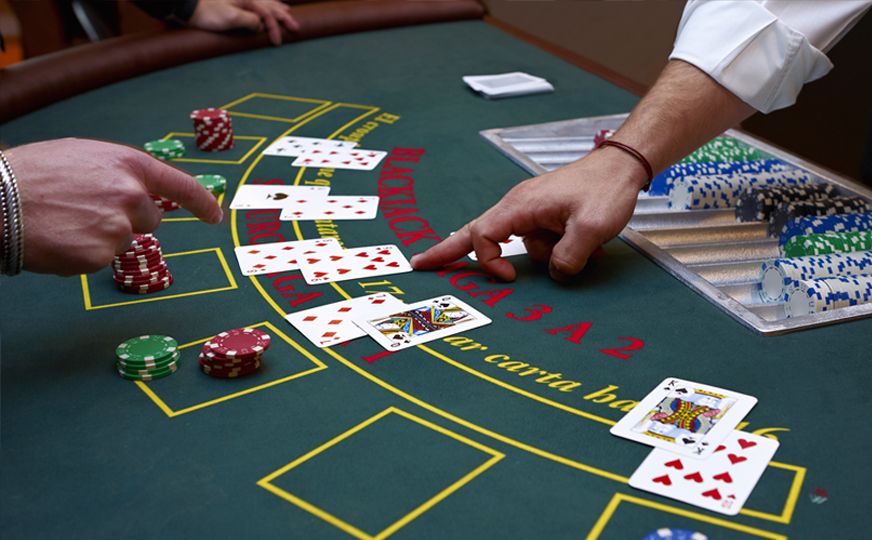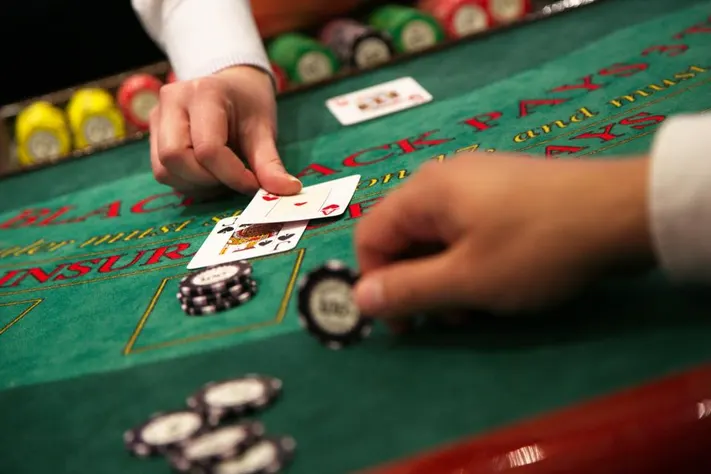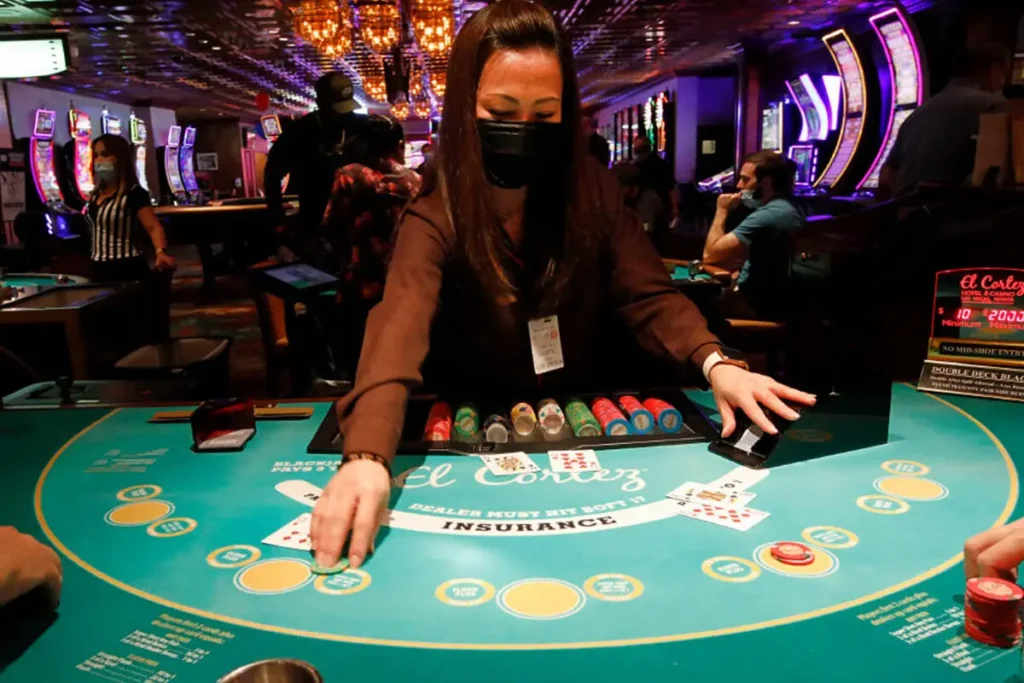Don Johnson: The Blackjack King
Indeed, there’s often a simpler, and dare I say, less deadly approach to things. The planet of blackjack has seen its fair share of strategies and brilliant minds, and here’s another one for the books.
It was just a few years after the 2008 financial crisis had started to simmer down. Atlantic City, sitting pretty on the coast of New Jersey, casinos hungry for profits, when the champion of our story, Don Johnson, walked majestically into the picture. Donald Johnson was born on May 10, 1962, in Salem, Oregon, United States. This high roller was presented with a beguiling proposition.
Johnson agreed to the casinos’ offer only if they would meet him halfway. This compromise would later be a source of regret for the casinos.
Johnson managed to secure a mathematical edge, and he milked the casinos for all they were worth, raking in over $15 million from Borgata, Caesars, and Tropicana. His doing all this without resorting to frantic card counting is awesome.
This tells us that Edward O. Thorp might have chosen a different path to his fortune — one that didn’t involve card counting and nearly cost him his life.
With the way things are heating up, I bet you want to go into the details of Johnson’s life and how he outsmarted those casinos at their own game already.
The Early Stuff
Don Johnson’s love affair with gaming began when his uncle entrusted him with caring for his racehorses in Salem, Oregon, at just 15 years old.
Johnson excelled at his new responsibility, and it was clear that his uncle had chosen the right person for the job. Before long, Johnson started to ride his uncle’s horses competitively. This was a bold move, considering his young age and the inherent risks of the sport, reminiscent of the daring feats portrayed by Luke in the 2015 epic movie, “The Longest Ride.”
Back to Johnson. He enjoyed several successful years as a jockey. However, to maintain the required weight, he had to take medication to slow down his natural growth. As he grew to a height of 6 foot 1, beyond the typical range for jockeys, he had to stop taking the medication and give up his career as a jockey. His body finally returned to its natural state.
At the age of 30, Johnson found himself managing racetracks. This career move took him from Salem, Oregon, to Bensalem, Philadelphia, less than 80 miles away from Atlantic City. He landed a job managing Philadelphia Park, a racetrack that later grew to be known as Parx Casino. Johnson was involved in various aspects of the business, including the betting operation, which taught him a lot about gambling.
Johnson excelled in this role to the point where he even served as a regulator in Oregon, Texas, and other U.S. states. He also founded a company that used computer technology to assist with betting on horses, a strategy somewhat similar to that employed by Bill Benter. Who knows, perhaps there’s a connection between Benter and Johnson.
In the early 2000s, Johnson turned his attention to blackjack. He brought with him all the expertise he had gained from horse racing, always hungry for an edge over the house. Compared to horse racing, the mathematics of blackjack was relatively a breeze for him.
While Johnson adhered to the house rules, he was not one to play without a strategy. He believed in making calculated moves. Interestingly, he chose to base his calculations on a smaller number of hands rather than millions, a decision that might seem overly simplistic given his mathematical ability. But Johnson was confident in his abilities. There was a method to his apparent simplicity.
The Strategy
As mentioned earlier, Johnson’s approach to blackjack didn’t at all involve card counting. The whole saga began in 2010. If you do not know, the rules that regular players and high rollers play by are not quite the same. High rollers, valued more by casinos than average customers, have the leverage to negotiate terms.
Casinos tempt them with “loss rebates” or discounts. For instance, a 10% discount meant a player who lost $250,000 would only have to pay $225,000.
This period in our story was just a few years after the 2008 financial crisis, and casinos in Atlantic City were experiencing a decline in revenue. High rollers were few and far between.
In response, marketers started aggressively courting big spenders, offering unprecedented discounts (up to 20%) and additional perks. This was something Johnson had never seen before. The aggressive marketing strategies created tension between marketers and gaming managers, but as revenues continued to fall, the marketers’ strategies prevailed.
The casinos aimed to attract high rollers who lacked skill and would eventually lose large sums of money. The casinos could then use these losses to recover financially. They saw Johnson as fitting this profile.
While they recognized he had some skills, they didn’t see him as a major threat, Which was a grave miscalculation. Johnson had both the financial resources and the skill to negotiate deals that maximized his chances of winning.
Johnson hadn’t played at the Borgata for over a year, so an executive from there was the first to approach him. They offered him a trip-to-trip discount, and Johnson accepted the deal. This sparked a competition between Tropicana and Caesars to win Johnson’s patronage, too, haha.
At Tropicana, Johnson negotiated a 20% discount on losses exceeding $500,000 and customized game rules that reduced the house advantage. These included the dealer standing on soft 17, a hand-shuffled six-deck shoe, and the ability to split and double down on up to four hands simultaneously.
Johnson did the maths and managed to reduce the house edge to a mere quarter of 1%, effectively making it a 50-50 game.
Caesars also made an attractive offer to Johnson, hoping to get the steak on the stake “turning” ASAP. Little did they know, the juice from the grilling steak would stoke up the grill fire into an inferno.
The Winning Streak
Johnson started the battle with $1 million, and, you know, he was only risking $800,000 because of the discount. Even though that is a lot, Johnson knew what he was doing. He knew better than to not stop when losses came, with that he could never lose all $1 million.
As Johnson continued to win, the casinos kept their promises. Johnson was able to keep his winnings and continue playing with the casinos’ money. The casinos probably thought it was just another lucky streak that would eventually lead to painful losses, helping them recover their losses.
Before the birds with lightning-fast reflexes could even spot the tiger stalking through the forest and take flight, Johnson had already inflicted a $5.8 million injury on the Borgata and $4 million on the Caesars.
Commando-bodied Johnson in April 2011, went on a marathon at the Tropicana lasting twelve hours. He was betting as if he had a score to settle with the casino management — placing $100,000 on a single hand, a sight rarely seen. His incredible winning streak caught the attention of everyone in the casino.
Chips were stacking up in front of him. Antman probably would have thought they were colorful Hong Kong skyscrapers. Johnson recalls one hand where he bagged $800,000, and another sequence of three hands where he took home $1.2 million. Johnson was the man of the hour. In total, Johnson extracted over $15 from the casinos, oh my.
The Morning After
The casinos finally woke up to the reality of their situation. Tropicana ended its deal with Johnson, as did Borgata. Caesars, refused to refill the chip tray, and eventually also terminated its agreement. Despite these actions, the tiger had already caused a lot of casualties.
A humorous incident occurred when the staff at Caesars realized the extent of their losses. They contacted their manager, who was overseas at the time, to inform him that they were short by “... 4 million”. The manager was left speechless. Johnson, ever the gambler, insisted on continuing to play at Caesars. The pit boss tried to redirect him to the standard betting floor, where normal house rules applied, thinking it was a clever move. Johnson declined his offer.
Caesars ended up banning Johnson. It’s unclear whether Borgata did the same. “By now, most casinos in Atlantic City have blacklisted him — they won’t even let him look at their buildings,” said Tony Rodio, the CEO of Tropicana Casino & Resort Atlantic City in 2012.
Interestingly, Tropicana has since welcomed Johnson back, albeit with modified discounts. Perhaps they haven’t fully learned their lesson.
As for Johnson, his life didn’t spiral out of control despite his winnings. He didn’t make any extravagant purchases for himself, though he did mingle with high-profile individuals. He continues to reside in Bensalem.
The Final Words
Johnson’s story is definitely one of intellect and superior negotiation abilities, on top of his blackjack expertise. It’s a narrative that has motivated numerous gamblers, perhaps yourself included.
However, it’s important to temper expectations as Johnson’s level of success is extraordinarily rare. Casinos are quick to learn from their mistakes and have since patched the loopholes that Johnson exploited.
What you can do is focus on understanding the game better. Calculate the house edge and make informed decisions about your odds based on your skill set. These things I tell you, will serve you well in the long run.

